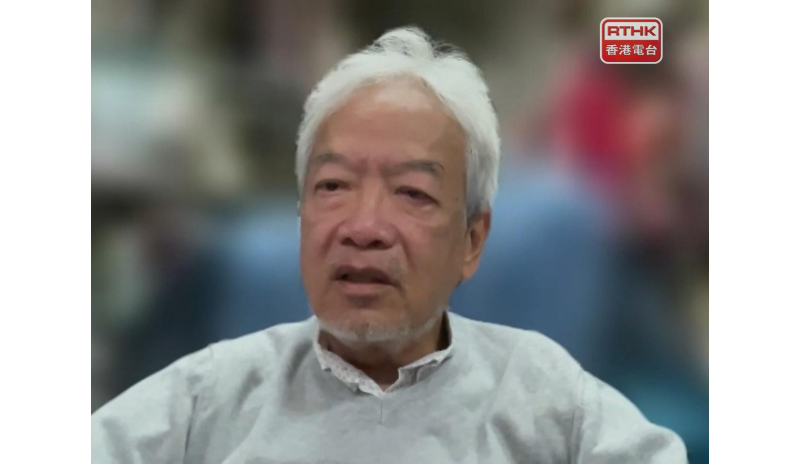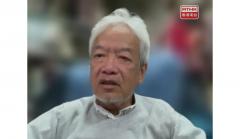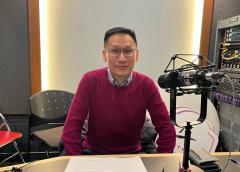簡介
Listen to #Hashtag Hong Kong every Sunday morning at 8.15
Focussing on issues affecting civil society, we'll hear from representatives of NGOs, associations, statutory bodies, and non-profit groups.
(Sundays 8.15am - 8.25am)
最新

Simon Wong, President of the Hong Kong Federation of Restaurants & Related Trades
As the government has announced the “ Waste Blueprint for HK 2035 “ to tackle the challenge of waste management as well as to build a circular economy and a sustainable green living environment, “Waste Reduction” is on the top priority list. The government has proposed a measure to regulate disposable plastic tableware in phases. The Amendment Bill for the first phase of regulation was thus passed in March 2023 and will be in force on April 22, 2024.
Under the Regulation, nine types of disposable plastic tableware would be introduced.
In the first phase under the Regulation, EPS tableware, plastic straws, stirrers, cutlery and plates are prohibited to sell to end-consumers and prohibited to provide by catering premises to customers for dine-in and takeaway services. The other disposable plastic tableware such as plates, cups food containers etc, will come into force in the second phase, but the date of implementation has yet to be determined.
There are a few issues which the catering industry is concerned upon the introduction of the ban on using plastic disposable materials. The catering industry at first worried if there were alternative products to substitute the plastic tableware, and whether those environmental substitutes would increase the operating cost.
Accordingly, if we look at the website of the Environmental Protection Department, we find that at the moment 64 companies are carrying 737 items which cover a wide range of non-plastic disposable tableware. Restaurant operators do have a lot of varieties to choose from which would suit their needs.
However, many restaurant operators are, at the moment, not eager to use non-plastic tableware as the government is giving a six-month grace period to the trade, such that operators will not be fined if they do not follow the regulation on and after April 22. On the other hand, it would give enough time for importers and wholesalers as well as retailers to consume or or deal with their inventories within the allowable period. This period would also offer more time for the catering industry to find more suitable products to suit their budget and needs.
In general, the cost of environmentally disposable products is about 20-30% more expensive than the plastic ones. Take the straws for example, a few cents increase seems not much for each straw, but it can translate to a substantial percentage increase when large quantities of straws are to be consumed. Since almost all non-plastic disposable products are imported, importers and wholesalers are not willing to take the risk of keeping too much stock in their warehouses at the moment. However, we believe that costs will come down when all restaurants have adopted the practice due to the larger quantity imports.
Another concern is the quality of the substitutes. Those non-plastic substitutes are commonly made of paper, bamboo, softwood, wood pulp and plant fibre materials. Though there are a lot of choices for each type of utensil, the quality of the product varies. Some customers have complained that the paper straws or spoons cannot sustain in higher temperatures nor cannot be put in liquid for too long as they will become soft. Of course, we can find better quality products in the market, but the cost will then be higher.
As the date for launching is drawing near, the catering industry has thought of ways to deal with the situation. Large restaurant groups, such as fast food chains, hotels and high-end restaurants have started using non-plastic utensils. Even though the cost, in general, is higher, they are willing to do so as it’s a social responsibility to compile with the ESG initiative. Some restaurants simply do not provide disposable utensils, but charge customers upon their request. Some restaurants or coffee shops have started to encourage customers to bring their utensils; in such cases, restaurants will save on the cost of providing the materials, while customers do not need to pay additional to the restaurants for getting non-plastic disposable tableware.
There are about 18,000 restaurant outlets in HK, and 98% of those are small and medium-sized enterprises. With the present gloomy economic environment, these SMEs would be very cautious about the increased expenses if environmental products are used. However, I would suggest to them to use more reusable products to lower their cost and not provide the disposable utensils to customers.
After all, the bill has passed, we, as an individual should do more for the environment. I also believe that education and publicity are vital means to pass the message to the public. The government should without any hesitation, launch more programs and publicities to educate the public how to deal with the change of living habits as well as to let people understand our environment is at risk if we do not act now.
I'd like to share this song with you all this morning, I want to dedicate "Somewhere over the Rainbow" by Judy Garland. Thank you for listening.

















